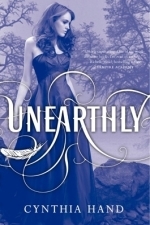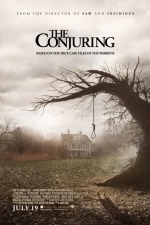Search
Search results

Weaphones: Firearms Simulator Volume 1
Games and Entertainment
App
Welcome to the world of Weaphones, the ultimate firearms simulator for your iPhone, iPod and iPad. ...
TheDefunctDiva (304 KP) rated Unearthly in Books
Sep 27, 2017
Ethereal and Intelligent
Contains spoilers, click to show
Clara Gardener has a vision, and a purpose. Her realizing that purpose is the main focus of the tale Unearthly. Clara has been blessed: she is genetically one quarter angel. And being part angel is more common than one might think. Clara has a brother, also an angel-blood. She also has a life in California before fate and the story take us to Wyoming.
The focus of Clara’s vision is a young lad named Christian Prescott, who is the McDreamy of Jackson Hole High School. In the vision, they meet and she flies him away from a raging forest fire. Part of the book is devoted to the mystery surrounding this seemingly simple supernatural event. The other parts have Clara honing her holier skills, such as flying.
Clara definitely has feelings for Christian. These feelings are complex because of his place in her alleged destiny. Yet there’s another boy threatening to capture her attention, potentially putting her purpose in jeopardy.
I found this book to be very insightful. Elements of the plot hearken back to a time when I was young and thought love could change everything. Hand easily incorporates elements of teenage angst and high school life without ever being cliché. The book touches on the aspect of religion without going overboard and drowning the reader in dogma. The idea of God is discussed, but not dissected. I applaud the author’s decision not to be so heavy-handed in this regard.
Hand evokes beautiful imagery, especially in her descriptions of the angels’ wings. The descriptions of the Wyoming scenery are also beautiful. The narrative informs us of the basics of angelology without getting too terribly geeky. The plot thickens with every chapter, and Hand’s descriptive writing style helps keep the reader engaged. There is a bit of a plot twist at the end. That, and the artfully crafted love triangle, will leave you anxiously awaiting the next book in the trilogy.
This book is a must-read for anyone who’s ever considered liking Twilight. The plot is in a bit of the same vein, as this book falls into the paranormal romance genre. But the descriptions of Clara’s experiences are far more intense and thought-provoking. The vision of Clara’s purpose mystifies and overwhelms her at times, and also makes her infinitely more interesting a heroine than Bella Swan.
In the end, it seems even those with vision do not have all of the answers. I am elated to see the author’s success and look forward to passing these books down to my daughter.
The focus of Clara’s vision is a young lad named Christian Prescott, who is the McDreamy of Jackson Hole High School. In the vision, they meet and she flies him away from a raging forest fire. Part of the book is devoted to the mystery surrounding this seemingly simple supernatural event. The other parts have Clara honing her holier skills, such as flying.
Clara definitely has feelings for Christian. These feelings are complex because of his place in her alleged destiny. Yet there’s another boy threatening to capture her attention, potentially putting her purpose in jeopardy.
I found this book to be very insightful. Elements of the plot hearken back to a time when I was young and thought love could change everything. Hand easily incorporates elements of teenage angst and high school life without ever being cliché. The book touches on the aspect of religion without going overboard and drowning the reader in dogma. The idea of God is discussed, but not dissected. I applaud the author’s decision not to be so heavy-handed in this regard.
Hand evokes beautiful imagery, especially in her descriptions of the angels’ wings. The descriptions of the Wyoming scenery are also beautiful. The narrative informs us of the basics of angelology without getting too terribly geeky. The plot thickens with every chapter, and Hand’s descriptive writing style helps keep the reader engaged. There is a bit of a plot twist at the end. That, and the artfully crafted love triangle, will leave you anxiously awaiting the next book in the trilogy.
This book is a must-read for anyone who’s ever considered liking Twilight. The plot is in a bit of the same vein, as this book falls into the paranormal romance genre. But the descriptions of Clara’s experiences are far more intense and thought-provoking. The vision of Clara’s purpose mystifies and overwhelms her at times, and also makes her infinitely more interesting a heroine than Bella Swan.
In the end, it seems even those with vision do not have all of the answers. I am elated to see the author’s success and look forward to passing these books down to my daughter.
Mark Jaye (65 KP) rated The Conjuring (2013) in Movies
May 13, 2019
The Conjuring Review
Contains spoilers, click to show
Originally wrote in 2013:
As an avid fan of horror I look for a few little things which if aren't apparent within the first minute decide on whether I'm going to bother with the rest of the film. Usually the company releasing the movie is a good starting point, reputable/recognised director or producer, recognisable actor/s, good production values - that sort of thing. I've seen some hum-dingers over the years - those films where Johnny Nobody has gathered several of his buddies together with a cheap camcorder or two and filmed some alleged zombie epic in the woods at the back of their school.
**The Conjuring is not one of those**
I like to think I have a strong disposition when it comes to scares - usually it takes a lot to make me squint. Examples that come to mind are 'Sinister', 'The Grudge', the end of 'The Ring' (you know, the scary dark haired girl climbing out of the TV!). The Conjuring is one of those - I watched this in the middle of the morning and found it pretty scary in places.
James Wan certainly knows how to make a movie of this type and is great at evoking atmosphere and notching up the scares as the film develops. In a nutshell, this is the alleged real life story of the Perron family who in 1971 moved into a new farmhouse. It isn't long before the usual shenanigans begin - pictures pulled off walls, doors knocking in the dead of night, the children befriending mysterious 'imaginary' kids (who we all know watching are going to show up at some point). The film sticks to the tried and tested story - gradual possession of one of the adults (Lily Taylor), gradually increasing appearances by ghostly figures, calling in the ghostbusters, gathering the proof, then the exorcism. It may be join the dots territory but it works.
Patrick Wilson shines and seems to be making his mark in films of this nature (Insidious and Insidious Chapter 2) - he portrays real life paranormal investigator Ed Warren who with his wife Lorraine (played just as well by Vera Farmiga) become immersed in the life of the Perron's making themselves targets of the supernatural force at work in the process.
The demonic spirit at work is that of a witch who was married to the guy who built the house back in the 1800's who cursed the land before committing suicide after murdering their child whilst a few days old. There is one particularly pant browning scene where the witch makes her first appearance atop a bedroom wardrobe....and I'll leave it there!
Quality. Best horror I've seen since Sinister.
As an avid fan of horror I look for a few little things which if aren't apparent within the first minute decide on whether I'm going to bother with the rest of the film. Usually the company releasing the movie is a good starting point, reputable/recognised director or producer, recognisable actor/s, good production values - that sort of thing. I've seen some hum-dingers over the years - those films where Johnny Nobody has gathered several of his buddies together with a cheap camcorder or two and filmed some alleged zombie epic in the woods at the back of their school.
**The Conjuring is not one of those**
I like to think I have a strong disposition when it comes to scares - usually it takes a lot to make me squint. Examples that come to mind are 'Sinister', 'The Grudge', the end of 'The Ring' (you know, the scary dark haired girl climbing out of the TV!). The Conjuring is one of those - I watched this in the middle of the morning and found it pretty scary in places.
James Wan certainly knows how to make a movie of this type and is great at evoking atmosphere and notching up the scares as the film develops. In a nutshell, this is the alleged real life story of the Perron family who in 1971 moved into a new farmhouse. It isn't long before the usual shenanigans begin - pictures pulled off walls, doors knocking in the dead of night, the children befriending mysterious 'imaginary' kids (who we all know watching are going to show up at some point). The film sticks to the tried and tested story - gradual possession of one of the adults (Lily Taylor), gradually increasing appearances by ghostly figures, calling in the ghostbusters, gathering the proof, then the exorcism. It may be join the dots territory but it works.
Patrick Wilson shines and seems to be making his mark in films of this nature (Insidious and Insidious Chapter 2) - he portrays real life paranormal investigator Ed Warren who with his wife Lorraine (played just as well by Vera Farmiga) become immersed in the life of the Perron's making themselves targets of the supernatural force at work in the process.
The demonic spirit at work is that of a witch who was married to the guy who built the house back in the 1800's who cursed the land before committing suicide after murdering their child whilst a few days old. There is one particularly pant browning scene where the witch makes her first appearance atop a bedroom wardrobe....and I'll leave it there!
Quality. Best horror I've seen since Sinister.
BankofMarquis (1832 KP) rated Don't Worry Darling (2022) in Movies
Oct 1, 2022
Plays it Too Safe
The previews for the new thriller/mystery DON’T WORRY DARLING shows a housewife in a seemingly idyllic 1950’s paradise community - but something about this seemingly perfect paradise is off - an intriguing premise for a film and one that I am a sucker for. Clearly, it will have some sort of twist that explains the weird situation our heroine is in. Most of the time, I can glean what that twist is going to be, but I gotta give DON’T WORRY DARLING credit, I couldn’t guess this one.
Starring Florence Pugh (BLACK WIDOW) and Harry Styles (of ONE DIMENSION fame), and Directed by Olvia Wilde (who also has a supporting role in this film), DON’T WORRY DARLING is a passable mystery/thriller with a plot twist that “plays fair” with the incongruities early in the film.
This is a safe film - and one that is safely paced - and that is the very definition of “damning with faint praise”. It doesn’t “lean into” the weirdness of the situation or the resultant take on the Male Dominated society of the 1950’s that marginalizes women into subordinate helpers.
Writer Katie Silberman (BOOKSMART) and Director Wilde just are too tame and cautious in their approach to this material and the film drags, slightly, in the first part of the film - a part of the film that could have used more injection of life into it by showing stronger instances of incongruity caused by “the twist” later on or stronger resistance by the Pugh character to break out of the background role her character is bound to, but they shy away from it.
Saving this film is the central performance of Pugh as housewife Alice who is slowly beginning to realize that something is wrong with this piece of heaven. Chris Pine is enigmatically mysterious as Frank, the boss of this experimental community while Wilde, Gemma Chan (THE ETERNALS) and Nick Kroll (WHAT WE DO IN THE SHADOWS) all provide solid - if unspectacular - supporting work.
Styles, on the other hand, works hard at his character and to hold his own in his scenes with Pugh, but he just isn’t on the same level of acting ability as Pugh, so his character falls short and seems thin in comparison to hers.
A film that could have been better if the Director and Writer had the courage of their commitments and pushed the envelope further AND if they could have found a counterpart performer to Pugh…but at least it does come up with an original and unique twist.
But, as it is, DON’T WORRY DARLING, falls squarely into “it’s fine, a good way to spend a few hours” category.
Letter Grade: B
7 stars (out of 10) and you can take that to the Bank(ofMarquis)
Starring Florence Pugh (BLACK WIDOW) and Harry Styles (of ONE DIMENSION fame), and Directed by Olvia Wilde (who also has a supporting role in this film), DON’T WORRY DARLING is a passable mystery/thriller with a plot twist that “plays fair” with the incongruities early in the film.
This is a safe film - and one that is safely paced - and that is the very definition of “damning with faint praise”. It doesn’t “lean into” the weirdness of the situation or the resultant take on the Male Dominated society of the 1950’s that marginalizes women into subordinate helpers.
Writer Katie Silberman (BOOKSMART) and Director Wilde just are too tame and cautious in their approach to this material and the film drags, slightly, in the first part of the film - a part of the film that could have used more injection of life into it by showing stronger instances of incongruity caused by “the twist” later on or stronger resistance by the Pugh character to break out of the background role her character is bound to, but they shy away from it.
Saving this film is the central performance of Pugh as housewife Alice who is slowly beginning to realize that something is wrong with this piece of heaven. Chris Pine is enigmatically mysterious as Frank, the boss of this experimental community while Wilde, Gemma Chan (THE ETERNALS) and Nick Kroll (WHAT WE DO IN THE SHADOWS) all provide solid - if unspectacular - supporting work.
Styles, on the other hand, works hard at his character and to hold his own in his scenes with Pugh, but he just isn’t on the same level of acting ability as Pugh, so his character falls short and seems thin in comparison to hers.
A film that could have been better if the Director and Writer had the courage of their commitments and pushed the envelope further AND if they could have found a counterpart performer to Pugh…but at least it does come up with an original and unique twist.
But, as it is, DON’T WORRY DARLING, falls squarely into “it’s fine, a good way to spend a few hours” category.
Letter Grade: B
7 stars (out of 10) and you can take that to the Bank(ofMarquis)
BankofMarquis (1832 KP) rated Little Women (2019) in Movies
Feb 5, 2020
A Worthy Adaptation
There have been many adaptations of Louisa May Alcott's 19th Century Classic novel LITTLE WOMEN following the adventures, loves and losses of the 4 March sisters - Jo, Meg, Amy and Beth.. My favorite is the Orono High School's production of the musical version of LITTLE WOMEN (starring my daughter as Jo), but coming in a close second is the 1933 version with Katherine Hepburn starring as Jo (the quintessential Jo, in my book). So was there really a need for ANOTHER version of this?
Well...yes...and...no.
As adapted and directed by Greta Gerwig, this version of LITTLE WOMEN stars Saoirse Ronan as Jo, Emma Watson as Meg, Florence Pugh as Amy and Eliza Scanlen as Beth and has a strong "2019" female empowerment vibe to it (this is intended to be a compliment). I've seen this called a "Little Women for the #metoo era" and I think this is misguided branding - for it does disservice to the #metoo movement - and to this film.
Ronan - as expected - was Oscar nominated for her strong, independent turn as the strong and independent Jo. This is a perfect marriage of performer and material (almost as good as the Hepburn turn) and Ronan lands this character strongly (and correctly) at every turn. Timothee Chalamet matches her beat for beat as her erstwhile love, Laurie. This is the 2nd time that these two have played opposite each other (LADYBIRD was the other time) and there is a strong chemistry between these two - I look forward to many, many more pairings of Ronan and Chalamet in the future.
Famously (or maybe, it's infamously) Greta Gerwig did NOT receive and Oscar nomination for her Direction - and I think that is a shame (there are at least 2 nominated Directors that I would take off the list in favor of her). Because she adapted the screen play (a piece of work that she WAS Oscar nominated for - and will win in an effort to make up for the Directing snub), her Direction is sure-handed and strong throughout. She has a very good feel for the material and knows what she wants to do throughout, to interesting results.
This is because Gerwig chooses to focus much of this version on the relationship between Jo and Amy - a relationship that gets short shrift in most of the other adaptations. By casting Florence Pugh (also Oscar nominated) in the Amy role, Gerwig has a strong antagonist to Ronan's protagonist - with shades of both being grey. Neither character (or performance) is black and white they are both interacting with each other as realistic sisters would, both taking turns being "in the right"....and "the wrong".
Because of the focus on the Jo and Amy characters, the other 2 sisters - Meg and (especially) Beth - get short changed and even though both Watson and Scanlen are "game", they have precious little to do. The same goes with Meryl Streep (Aunt March), Laura Dern (Marmie), Tracy Letts (who seems to be in EVERYTHING right now) and Bob Odenkirk (of all people). They are all strong - and earnest - in their limited time on screen, but NONE of them have that much to do. Only Chris Cooper shines brightly in his small, supporting role.
I have to admit that because I've seen this story many, many times, I found my mind wandering a bit - especially at the beginning. But by the time Ronan/Chalamet/Pugh started working off of each other, the film - and my interest - rose.
So...is another version of LITTLE WOMEN necessary? I'd say no. But...if this version of LITTLE WOMEN is the one that the Little Women of today see - and can identify with - then I say "bring it on."
Letter Grade: A-
8 stars (out of 10) and you can take that to the Bank (ofMarquis)
Well...yes...and...no.
As adapted and directed by Greta Gerwig, this version of LITTLE WOMEN stars Saoirse Ronan as Jo, Emma Watson as Meg, Florence Pugh as Amy and Eliza Scanlen as Beth and has a strong "2019" female empowerment vibe to it (this is intended to be a compliment). I've seen this called a "Little Women for the #metoo era" and I think this is misguided branding - for it does disservice to the #metoo movement - and to this film.
Ronan - as expected - was Oscar nominated for her strong, independent turn as the strong and independent Jo. This is a perfect marriage of performer and material (almost as good as the Hepburn turn) and Ronan lands this character strongly (and correctly) at every turn. Timothee Chalamet matches her beat for beat as her erstwhile love, Laurie. This is the 2nd time that these two have played opposite each other (LADYBIRD was the other time) and there is a strong chemistry between these two - I look forward to many, many more pairings of Ronan and Chalamet in the future.
Famously (or maybe, it's infamously) Greta Gerwig did NOT receive and Oscar nomination for her Direction - and I think that is a shame (there are at least 2 nominated Directors that I would take off the list in favor of her). Because she adapted the screen play (a piece of work that she WAS Oscar nominated for - and will win in an effort to make up for the Directing snub), her Direction is sure-handed and strong throughout. She has a very good feel for the material and knows what she wants to do throughout, to interesting results.
This is because Gerwig chooses to focus much of this version on the relationship between Jo and Amy - a relationship that gets short shrift in most of the other adaptations. By casting Florence Pugh (also Oscar nominated) in the Amy role, Gerwig has a strong antagonist to Ronan's protagonist - with shades of both being grey. Neither character (or performance) is black and white they are both interacting with each other as realistic sisters would, both taking turns being "in the right"....and "the wrong".
Because of the focus on the Jo and Amy characters, the other 2 sisters - Meg and (especially) Beth - get short changed and even though both Watson and Scanlen are "game", they have precious little to do. The same goes with Meryl Streep (Aunt March), Laura Dern (Marmie), Tracy Letts (who seems to be in EVERYTHING right now) and Bob Odenkirk (of all people). They are all strong - and earnest - in their limited time on screen, but NONE of them have that much to do. Only Chris Cooper shines brightly in his small, supporting role.
I have to admit that because I've seen this story many, many times, I found my mind wandering a bit - especially at the beginning. But by the time Ronan/Chalamet/Pugh started working off of each other, the film - and my interest - rose.
So...is another version of LITTLE WOMEN necessary? I'd say no. But...if this version of LITTLE WOMEN is the one that the Little Women of today see - and can identify with - then I say "bring it on."
Letter Grade: A-
8 stars (out of 10) and you can take that to the Bank (ofMarquis)
Movie Metropolis (309 KP) rated Minions (2015) in Movies
Jun 10, 2019
Bright, smart and hilarious
They’re everywhere! Minions have become a worldwide phenomenon since their unveiling in 2010’s smash-hit Despicable Me and for their return in its sequel.
It was only a matter of time before Universal gave their most successful animated franchise a prequel, and allowing it to focus on the cute yellow creatures was a masterstroke by the people behind the scenes. No matter where you go there is something minion related to buy.
But the question is, does a film based on them truly work? After all, it’s their evil master Gru who is the main focus of the previous features.
Minions follows the history of the loveable race from humble beginnings serving an unlucky Tyrannosaurus right up to the moment they meet their aforementioned boss in a film packed full of colour and imagination.
After a history lesson narrated by the wonderful Geoffrey Rush, we find three plucky minions – Kevin, Stuart and the adorable Bob (accompanied by teddy Tim) as they are about to embark on a mission to find the most evil boss in the world.
Stumbling across the wicked Scarlet Overkill (voiced beautifully by Sandra Bullock) along the way, the trio think they have found everything they ever wanted right here in England.
Seeing London realised in animation as excellent as that in Minions is a joy. The city is a hive of activity with every frame being filled to the brim with tiny details like stained-glass windows, bees, rats, telephone boxes and fluttering flags. It’s just a shame we don’t get to see it more.
Naturally the English stereotypes come out in full force with tea-drinking newsreaders and policemen, but they’re done in such good taste you can’t help but laugh.
This is where Minions excels. Its humour is sublime. The kids will be rolling around in the aisles one moment, with adults finding something equally as hilarious the next – this is how a family film should be. There are pop culture references abound and even some nods to previous US presidents.
Kevin, Bob and Stuart are the perfect trio to spend 90 minutes with. Each of them have rich personalities that feel like they’ve been cleverly crafted to ensure you find a bit of yourself in each – I know, it sounds ridiculous.
Unfortunately, the story runs a little out of puff towards the film’s climax. It delves into unnecessarily silly territory when it really doesn’t need to and it’s a shame that a smart kid’s movie like this feels the need to dumb it all down.
Thankfully, it picks up again in the last 15 minutes and makes for a truly memorable ending.
Overall, Minions is a funny, charming and well-paced film that confirms what we all feared – Britain is obsessed by minions. The animation and humour are both sublime with only an exhausted plot stopping it from achieving greatness.
One thing’s for sure though, that obsession your child has with the pill-shaped creatures, it won’t be going away any time soon. Minions – me ti amo (I love you in Minionese).
https://moviemetropolis.net/2015/06/28/bright-smart-and-hilarious-minions-review/
It was only a matter of time before Universal gave their most successful animated franchise a prequel, and allowing it to focus on the cute yellow creatures was a masterstroke by the people behind the scenes. No matter where you go there is something minion related to buy.
But the question is, does a film based on them truly work? After all, it’s their evil master Gru who is the main focus of the previous features.
Minions follows the history of the loveable race from humble beginnings serving an unlucky Tyrannosaurus right up to the moment they meet their aforementioned boss in a film packed full of colour and imagination.
After a history lesson narrated by the wonderful Geoffrey Rush, we find three plucky minions – Kevin, Stuart and the adorable Bob (accompanied by teddy Tim) as they are about to embark on a mission to find the most evil boss in the world.
Stumbling across the wicked Scarlet Overkill (voiced beautifully by Sandra Bullock) along the way, the trio think they have found everything they ever wanted right here in England.
Seeing London realised in animation as excellent as that in Minions is a joy. The city is a hive of activity with every frame being filled to the brim with tiny details like stained-glass windows, bees, rats, telephone boxes and fluttering flags. It’s just a shame we don’t get to see it more.
Naturally the English stereotypes come out in full force with tea-drinking newsreaders and policemen, but they’re done in such good taste you can’t help but laugh.
This is where Minions excels. Its humour is sublime. The kids will be rolling around in the aisles one moment, with adults finding something equally as hilarious the next – this is how a family film should be. There are pop culture references abound and even some nods to previous US presidents.
Kevin, Bob and Stuart are the perfect trio to spend 90 minutes with. Each of them have rich personalities that feel like they’ve been cleverly crafted to ensure you find a bit of yourself in each – I know, it sounds ridiculous.
Unfortunately, the story runs a little out of puff towards the film’s climax. It delves into unnecessarily silly territory when it really doesn’t need to and it’s a shame that a smart kid’s movie like this feels the need to dumb it all down.
Thankfully, it picks up again in the last 15 minutes and makes for a truly memorable ending.
Overall, Minions is a funny, charming and well-paced film that confirms what we all feared – Britain is obsessed by minions. The animation and humour are both sublime with only an exhausted plot stopping it from achieving greatness.
One thing’s for sure though, that obsession your child has with the pill-shaped creatures, it won’t be going away any time soon. Minions – me ti amo (I love you in Minionese).
https://moviemetropolis.net/2015/06/28/bright-smart-and-hilarious-minions-review/
Gareth von Kallenbach (980 KP) rated the PC version of Borderlands 3 in Video Games
Sep 25, 2019
Gamers exchange the world over can rejoice as the long-awaited new chapter in the Borderlands saga has arrived with Borderlands 3. The game takes place after the events of Borderlands 2 and the Telltale series of games which cast players as one of four new Vault Hunters who seek to find one of the Great Vaults which have been the main objective of the prior games in the series.
The four new characters break down as follows…
Amara the Siren, FL4K the Tracker, Moze the Gunner and Zane the Operative.
Characters have unique abilities which can be adjusted as the game unfolds as players will gain skill points to allocate to various abilities as they level up throughout the game. Each character has a special ability that is deployable after a certain amount of time and really can turn the tide of battle. Moze for example can deploy a mechanized unit known as an “Iron Bear” which is capable of unleashing a devastating arsenal of bullets, rockets, flames, and increased protection which makes it ideal when taking on some of the bosses in the game.
One of the new features in the game aside from being able to have better ability to mantel or destroy cover objects is a greater range of destructible containers which helps turn the tide against the relentless and overwhelming numbers that players can face.
Well I played a significant chunk of the game on my own; the game does allow up to four players to play with one another and this came in very handy during a couple of battles Where I simply did not have enough firepower to complete it on my own.
There were some frustrations with the matchmaking system which did not allow me to select games to join and I was basically dropped in blind to games near my character level. This caused me to have to repeat a mission multiple times and then endure having to re-do the mission I needed help with three times due to various glitches and crashes.
Further complicating matters was that in joining a game blind, that now became the jumping off point for continuing my game. It took a little bit of searching to find one roughly where I had left off; so I could continue on.
The key for me turned out to be asking for assistance from players on my friends list as well is those who were listed on my recent contact sessions.
The game tasks players to go up against Twins who have started a Cult as they attempt to unlock the Great Vault and use the power to control the galaxy and kill all those who oppose them.
As anybody who is played any games in the series knows; there are all manner of enemies and creatures for players to battle as well as vehicles and NPC characters to help out and move the story along.
This time out players have a spaceship called Sanctuary which allows players to venture away from Pandora and experience several other planets in the Borderlands Universe. Each planet has its own unique look and bio system ranging from a Louisiana style swamp location to high-tech cities as an example.
The graphics in the game are absolutely stunning in the amount of detail is simply breathtaking to behold. The level of detail in something as simple as a mansion is worthy of just walking around having a look were it not for the numerous things trying to take you out. The game has incredible amounts of loot that players can accumulate which can be used for various upgrades. 2K and Gearbox promote that there are over 1 billion weapons available in the game which leads to some really difficult choices as to which ones players keep, discard, or placed into storage.
While one may offer a bigger punch; it may be slow to reload, have limited ammunition, and increased accuracy. There is definitely a lot of experimentation that goes on and the same is true for the skills tree which even after completing the game is still fairly open which will entice me to go back and complete side quests while I wait for the DLC and maximizes the potential of my character.
The game is exceptionally long which is not a bad thing save for a couple of times when I thought the game was wrapping up only to be signed more back-and-forth or other missions to advance the story. This is not a bad thing as the universe is incredibly immersive but I found myself eager to see what the outcome of the story was rather than what seem like a series of missions designed to extend gameplay.
That being said; Borderlands 3 was hands-down the best gaming experience I have had this year and is an early contender for game of the year award despite the glitches and matchmaking frustrations that hampered some of my enjoyment of the game.
Start to finish I was absolutely captivated by the game and I’m eager to go back in and experience more of this incredible universe as I look forward to the free and paid updates that are coming soon which will hopefully keep me satisfied until the next chapter in the series is released which hopefully will not be as long a wait.
4.5 stars out
The four new characters break down as follows…
Amara the Siren, FL4K the Tracker, Moze the Gunner and Zane the Operative.
Characters have unique abilities which can be adjusted as the game unfolds as players will gain skill points to allocate to various abilities as they level up throughout the game. Each character has a special ability that is deployable after a certain amount of time and really can turn the tide of battle. Moze for example can deploy a mechanized unit known as an “Iron Bear” which is capable of unleashing a devastating arsenal of bullets, rockets, flames, and increased protection which makes it ideal when taking on some of the bosses in the game.
One of the new features in the game aside from being able to have better ability to mantel or destroy cover objects is a greater range of destructible containers which helps turn the tide against the relentless and overwhelming numbers that players can face.
Well I played a significant chunk of the game on my own; the game does allow up to four players to play with one another and this came in very handy during a couple of battles Where I simply did not have enough firepower to complete it on my own.
There were some frustrations with the matchmaking system which did not allow me to select games to join and I was basically dropped in blind to games near my character level. This caused me to have to repeat a mission multiple times and then endure having to re-do the mission I needed help with three times due to various glitches and crashes.
Further complicating matters was that in joining a game blind, that now became the jumping off point for continuing my game. It took a little bit of searching to find one roughly where I had left off; so I could continue on.
The key for me turned out to be asking for assistance from players on my friends list as well is those who were listed on my recent contact sessions.
The game tasks players to go up against Twins who have started a Cult as they attempt to unlock the Great Vault and use the power to control the galaxy and kill all those who oppose them.
As anybody who is played any games in the series knows; there are all manner of enemies and creatures for players to battle as well as vehicles and NPC characters to help out and move the story along.
This time out players have a spaceship called Sanctuary which allows players to venture away from Pandora and experience several other planets in the Borderlands Universe. Each planet has its own unique look and bio system ranging from a Louisiana style swamp location to high-tech cities as an example.
The graphics in the game are absolutely stunning in the amount of detail is simply breathtaking to behold. The level of detail in something as simple as a mansion is worthy of just walking around having a look were it not for the numerous things trying to take you out. The game has incredible amounts of loot that players can accumulate which can be used for various upgrades. 2K and Gearbox promote that there are over 1 billion weapons available in the game which leads to some really difficult choices as to which ones players keep, discard, or placed into storage.
While one may offer a bigger punch; it may be slow to reload, have limited ammunition, and increased accuracy. There is definitely a lot of experimentation that goes on and the same is true for the skills tree which even after completing the game is still fairly open which will entice me to go back and complete side quests while I wait for the DLC and maximizes the potential of my character.
The game is exceptionally long which is not a bad thing save for a couple of times when I thought the game was wrapping up only to be signed more back-and-forth or other missions to advance the story. This is not a bad thing as the universe is incredibly immersive but I found myself eager to see what the outcome of the story was rather than what seem like a series of missions designed to extend gameplay.
That being said; Borderlands 3 was hands-down the best gaming experience I have had this year and is an early contender for game of the year award despite the glitches and matchmaking frustrations that hampered some of my enjoyment of the game.
Start to finish I was absolutely captivated by the game and I’m eager to go back in and experience more of this incredible universe as I look forward to the free and paid updates that are coming soon which will hopefully keep me satisfied until the next chapter in the series is released which hopefully will not be as long a wait.
4.5 stars out

Uncharted Weather
Weather and Entertainment
App
Weather App that's as much fun to use as it is to look at Miles away from the typical clinical...

Spanish English Dictionary +
Travel and Reference
App
The #1 Spanish English Dictionary for iPhone, iPad & iPod Touch - Offline Dictionary with over...
Gareth von Kallenbach (980 KP) rated Red Dawn (2012) in Movies
Aug 7, 2019
Back in 1984 in the late stages of the Cold War, the movie named “Red Dawn” was released. It starred several young actors and actresses who went on to a variety of success including Patrick Swayze, Charlie Sheen, Jennifer Grey, and Lea Thompson. The film follows a group of high school students who fight to defend their town, families, and country after an invasion of Soviet and Cuban forces occupies mainland America.
Despite being delayed for nearly 3 years due to financial issues, the new version of “Red Dawn” has arrived and also features an impressive young cast of future stars. Chris Hemsworth has gone on to find fame as Thor while Josh Hutcherson has found fame playing Peeta in “The Hunger Games”. The fact that this movie was filmed before either of those actors appeared in their signature roles allows the studio to now benefit from the increased name recognition of the cast.
Instead of a California town, the new film is set in Spokane, Washington where thanks to news clip segments at the beginning of the film, we understand that the country is involved in numerous conflicts around the globe and some question whether or not we have enough forces to secure our borders. Enter Jed Eckert (Hemsworth), who’s just returned home on leave after serving combat duty in the Middle East. His younger brother Matt (Josh Peck), is a quarterback at the local high school team and he bears resentment toward his brother for leaving shortly after the death of their mother. Their father is a well-respected member of the force and does his best to ensure harmony between the brothers as well as their local community.
The brothers are literally shaken awake by an airborne assault as North Korea lands troops throughout their community. Unsure what is happening, Jed, Matt, and several of their friends managed to escape into the wilderness and devise a plan for survival. Further complicating matters is the fact that Matt’s girlfriend Erica (Isabel Lucas), has been taken prisoner. Jed, with his military background quickly assumes control of the group, but Matt finds himself distracted from following orders and missions whenever he sees an opportunity to pursue Erica’s freedom.
The group calls itself “The Wolverines” after the local football team, and engages in a series of hit-and-run tactics against the invading forces. The plan is to make the occupation so costly that they will eventually give up. While they do have initial success, they soon realize that they are fighting against substantial odds not the least of which is their own internal conflicts and agendas as well as diminishing supplies.
When a recon group from the military under the command of Col. Andy Tanner (Jeffrey Dean Morgan), arrives and tells the Wolverines about a device that may hold the key to their victory. The two sides must team up in an all-out assault on enemy headquarters in an effort to save the day.
While the film has plenty of action, the leaps of logic and common sense it requires the audience to take are astronomical. I understand that for a film of this type you must suspend a lot of reality in order for it to work. I’m not supposed asked questions about the logistics of the enemy’s plan and their actions. Suffice it to say that I could think of at least a dozen factors that were not brought into play. While the enemy may indeed have the ability to shut down various electronics and defensive capabilities which enabled the invasion. That does not explain where the military outside of the combat zone is, why our allies and remaining military are not dropping bombs and nukes on North Korea in retaliation, and scores of other inconsistencies. It is essentially left to our imaginations as to why this is not happening and we’re just supposed to accept on blind faith that there’s a good reason for this even though the recon unit manages to infiltrate Spokane in a helicopter and makes mentions of Missouri to Arizona as being free of any enemy influence.
The best thing I can say about the film said if you are willing to overlook the abundance of plot holes and logic gaps, as well as some at times stiff acting and dialogue, there are some enjoyable action seems to be found. The young cast works well with one another and often gave a very energetic and physical performance.
If you are a fan of the original, you may enjoy this film from a nostalgia standpoint, otherwise leave your common sense behind, sit back and enjoy the ride.
Despite being delayed for nearly 3 years due to financial issues, the new version of “Red Dawn” has arrived and also features an impressive young cast of future stars. Chris Hemsworth has gone on to find fame as Thor while Josh Hutcherson has found fame playing Peeta in “The Hunger Games”. The fact that this movie was filmed before either of those actors appeared in their signature roles allows the studio to now benefit from the increased name recognition of the cast.
Instead of a California town, the new film is set in Spokane, Washington where thanks to news clip segments at the beginning of the film, we understand that the country is involved in numerous conflicts around the globe and some question whether or not we have enough forces to secure our borders. Enter Jed Eckert (Hemsworth), who’s just returned home on leave after serving combat duty in the Middle East. His younger brother Matt (Josh Peck), is a quarterback at the local high school team and he bears resentment toward his brother for leaving shortly after the death of their mother. Their father is a well-respected member of the force and does his best to ensure harmony between the brothers as well as their local community.
The brothers are literally shaken awake by an airborne assault as North Korea lands troops throughout their community. Unsure what is happening, Jed, Matt, and several of their friends managed to escape into the wilderness and devise a plan for survival. Further complicating matters is the fact that Matt’s girlfriend Erica (Isabel Lucas), has been taken prisoner. Jed, with his military background quickly assumes control of the group, but Matt finds himself distracted from following orders and missions whenever he sees an opportunity to pursue Erica’s freedom.
The group calls itself “The Wolverines” after the local football team, and engages in a series of hit-and-run tactics against the invading forces. The plan is to make the occupation so costly that they will eventually give up. While they do have initial success, they soon realize that they are fighting against substantial odds not the least of which is their own internal conflicts and agendas as well as diminishing supplies.
When a recon group from the military under the command of Col. Andy Tanner (Jeffrey Dean Morgan), arrives and tells the Wolverines about a device that may hold the key to their victory. The two sides must team up in an all-out assault on enemy headquarters in an effort to save the day.
While the film has plenty of action, the leaps of logic and common sense it requires the audience to take are astronomical. I understand that for a film of this type you must suspend a lot of reality in order for it to work. I’m not supposed asked questions about the logistics of the enemy’s plan and their actions. Suffice it to say that I could think of at least a dozen factors that were not brought into play. While the enemy may indeed have the ability to shut down various electronics and defensive capabilities which enabled the invasion. That does not explain where the military outside of the combat zone is, why our allies and remaining military are not dropping bombs and nukes on North Korea in retaliation, and scores of other inconsistencies. It is essentially left to our imaginations as to why this is not happening and we’re just supposed to accept on blind faith that there’s a good reason for this even though the recon unit manages to infiltrate Spokane in a helicopter and makes mentions of Missouri to Arizona as being free of any enemy influence.
The best thing I can say about the film said if you are willing to overlook the abundance of plot holes and logic gaps, as well as some at times stiff acting and dialogue, there are some enjoyable action seems to be found. The young cast works well with one another and often gave a very energetic and physical performance.
If you are a fan of the original, you may enjoy this film from a nostalgia standpoint, otherwise leave your common sense behind, sit back and enjoy the ride.






